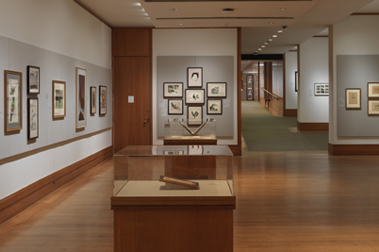Formes et Couleurs, Planche 16
Designed by Auguste H. Thomas French
Published by Albert Lévy, Librairie Centrale des Beaux-Arts
Not on view
Sixteenth plate of pochoir pattern book with loose leaves titled "Formes et Couleurs: Vingt Planches en Couleurs Contenant Soixante-sept Motifs Décoratifs" (Forms and Colors: Twenty Colored Plates Containing Sixty-Seven Decorative Motifs), designed by Auguste H. Thomas and edited by Albert Lévy, published in Paris by Librairie Centrale des Beaux-Arts around 1930. The album is composed of one title page and 20 plates with several designs, numbered 1-20. The plates are stored inside a reconstructed black portfolio with title pochoir label on the front cover. The designs in the album are possibly for textiles and contain a variety of geometric motifs, birds and flowers, all typical of the Art Deco style, which was characterized by its eclecticism, drawing from a variety of sources that sought to combine old European design traditions with the modern style diffused by avant-garde art, while also reflecting the romantic fascination with early Egyptian and Meso-American "exotic" cultures promoted by archaeological discoveries of the times.
The plate consists of three designs with semi-abstract motifs with flowers and leaves. The first design is made up of semi-abstract leaves, colored with tan, and semi-abstract bunches of grapes, colored with shades of purple, over a violet ground with black dots. The second design is made up of semi-abstract flowers, colored with orange and shades of purple, and semi-abstract leaves, colored with blue and black, over a purple ground. The third design is made up of semi-abstract roses, colored with red, orange and gray, standing on green stems with leaves, over a cream ground with semi-abstract interlacing branches colored with blue and green.
